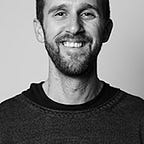Trump — the first crowdsourced election campaign
There is a lot of talk about how we might renew democracy for the 21st century — and one of the most interesting and persuasive arguments is that we should have more ‘direct representation’ — using technology to crowdsource ideas and swift decisions.
This may seem a bizarre claim — but was Donald Trump’s campaign the first successful 21st century crowdsourced election victory?
Listening to Donald Trump’s inauguration speech was an unsettling and disconcerting experience. He described an election won by “the people” — and that his victory signified the moment where “the people became the rulers of this nation again”. Many of the lines could easily have been delivered by a genuine leftist like Bernie Sanders.
To hear those words from a billionaire who has already filled his cabinet with the richest, least representative gang of rich plutocrats in American history sounds like some kind of sick joke.
But there is some truth in the claim that his victory was indeed the ‘people’s victory’ — or at the very least, ‘Trump-supporting people’s’ victory — in that they created the Trump phenomena themselves, through a bizarre crowd-sourcing process.
Many have speculated that Donald Trump’s narcissism goes well beyond personality characteristic into the realm of diagnosable pathology.
A key characterisation of the Narcissitic Personality Disordered (NPD) individual is that they have a very unstable sense of self that is almost entirely dependent on others’ reactions and validation of them.
As the profile above speculates — and many reporters have described — Trump barely exists as an individual with a private and interior life, he needs constant attention and company.
Combined with the celebrity that allowed him to draw crowds from the moment he announced his candidacy — this was a unique combination of factors that led to a unique moment in politics.
Nearly every politician has some set of core beliefs — Trump had none. His rallies were bizarre stream-of-consciousness rants. Every now and again he’d say something that got a reaction — “build a wall”, or “lock her up” for example.
Trump’s entire being is dependent on those reactions, so whenever that happened his dopamine circuits would light up, he would repeat it, or file it away to become part of the performance next time.
His rallies became a narcissitic feedback loop of dysfunction — creating a incoherent but very powerful set of ideas and narratives — effectively generated from the reaction of the crowd. And this was not ‘the wisdom of the crowd’ — as many have commented, the Trump rallies were dark and paranoid affairs where the anonymity of the mass allowed people to indulge some of their worst instincts.
The Observer’s editorial at the weekend summed up very well the kind of politics and movement that this has created:
What does this mean for Trump in office? It is hard to say, but this kind of personality is easily understood and controlled, mainly by feeding his ego and making him feel better about himself.
What does it mean for the concept of crowd-sourcing democracy? The Trump victory, and the Brexit vote in the UK should make us wary of what that might mean in practice — the assumption of many of the digital idealists is that it would lead to decisions more in tune with their own (liberal) views — but outside the bubble, these views are not the majority.
The crowd-sourced campaign is over — the Trump presidency will also take direction from outside himself — pay close attention to the likes of Steve Bannon. Trump may not have a plan, but they do.
